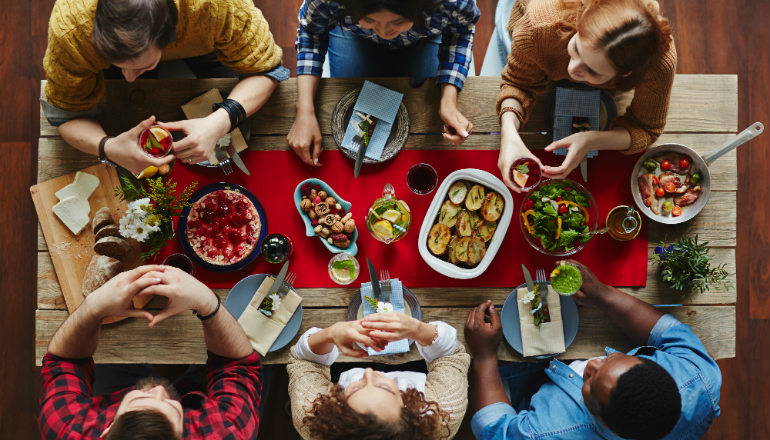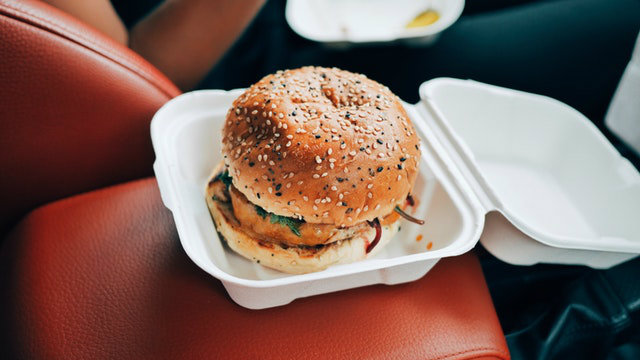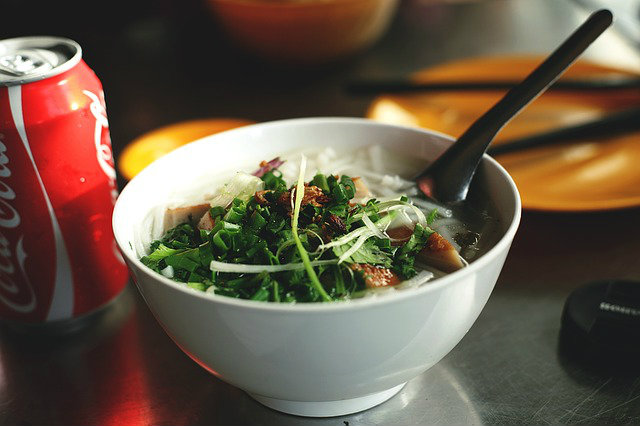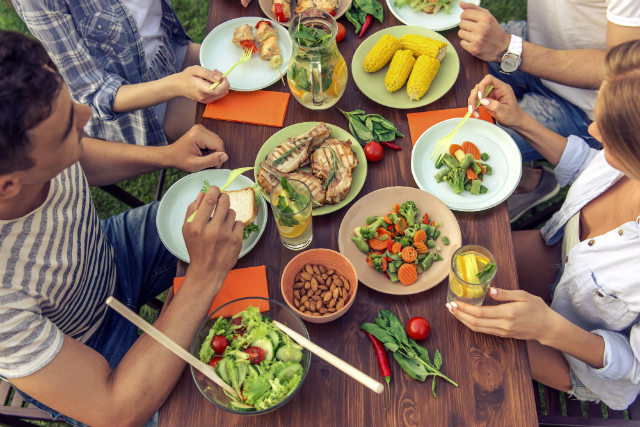
When I was a growing up, we had a sit-down family dinner every night. In high school and college, I regularly ate with friends in the cafeteria. When I started my first career, I went out for a proper lunch with coworkers almost every day.
But that was back in the day when the once common notion of the leisurely and social meal was the norm. These days the sit-down meal is the exception and food in the modern era tends to be inhaled as if our life depends on it.
Of course, our life does depend on it.
How We Eat: Fast and Furious
In case you haven’t noticed, you’re pretty darn busy. Competing for your time: a constant stream of notifications, emails, and texts; endless errands; and a grueling eight-to ten-hour workday. Then, there’s the matter of carving out a little personal time and, lastly, the obligatory hours of sleep. This type of lifestyle leaves us little time for one of the most basic human necessities — eating.
Matching the hectic pace of how we work, how we exercise, and how we interact, means how we eat is frequently on the go, in our cars, and as quickly as possible.

Sensing these inevitable trends stemming from technology, suburban migration, and the expanding workweek, Red’s Giant Hamburg created the first drive-through decades ago in Missouri. Wendy’s and McDonald’s soon followed and everyone from fast food to health food sooner or later introduced their own version of accessible, convenient, and easy-to-consume foods.
Eating on the go is now the norm and, while doing so is efficient, “mobile nutrition” also carries with it a variety of negative consequences and health repercussions — and not necessarily in the way you might think.
The Long-Term Impact of How We Eat
The inherent nature of grab-and-go meals demands food that is portable, non-perishable, and relatively effortless to consume. Since profitability equates to durability, we end up with hyper-processed foods with additives and preservatives to ensure maximum shelf life.
This dynamic reminds me of a poignant scene in Morgan Spurlock’s documentary Supersize Me. In the film, Spurlock leaves a fast-food meal sitting out for days to see what would happen. It turns out — nothing happened. It took weeks for the food to show signs of spoiling.
Such obvious health implications have turned droves away from fast food in recent years. Many people just “get” the basic notion that chicken nuggets and soft drinks are bad for you. Indeed, fast food, sugar, and soda have taken extensive blame for the trend of expanding waistlines, and deservedly so. In response, fast food companies have been scrambling to meet the demands for healthier food options from salads to egg whites.

But by far the king of blame for the global obesity pandemic and correlated health issues like metabolic syndrome has been the calorie. The calorie narrative has been so beaten into our psychology that many accept it without a second thought. “I eat too many calories” is the close cousin of “I don’t burn enough,” and both have been so widely burned into the mainstream media and our collective thinking that the calorie mantra is simply accepted as fact.
And, at a primal level, the notion of the calorie is true. If you starve your body of the necessary calories to survive, it ultimately won’t. Conversely, if you consume too many calories, you’ll gain weight. But our cultural ideas about “calories” haven’t positively impacted our actual eating behavior. And, recent research has shown that diet quality was the major factor in long-term well-being and controlling weight, not calories.
Furthermore, the caloric focus takes the attention away from where it should squarely reside — on what and how we eat.
The Bigger Problems with Processed Food
There is a vast amount of data out there concerning the foods we eat. By some measures, almost half of the American diet comes in the form of mass-produced, ultra-processed food. It comes as no surprise to many that voraciously eating such food won’t do your body good in the long run.
In a recent large-scale study, even a 10% increase in processed food consumption directly correlated to cancer events. Studies also link eating processed and packaged foods to Alzheimer’s, obesity, and metabolic diseases like diabetes. But it isn’t just what we eat that is problematic — it’s also how we eat.

The manner in which most of us eat is frequently an afterthought, if it’s even a thought at all. A powerful piece in Psychology Today explained the social virtues of focusing on how we eat:
“When you cook at home, you not only control the portions and ingredients, you reconnect yourself to what you eat and — most important — with what your family eats. When you make time to eat these meals with family and friends, you gain a richer experience of eating: not only do you appreciate the food you make, but also you connect your immediate community with a tradition of eating. You also disempower the powerful institutions that have a vested interested in our continuing dependence on processed foods.”
Science also confirms the fact that it’s not just a good ritual to eat with your family — it’s better for your body. According to a study conducted by John’s Hopkins Bloomberg School of Public Health people who cook at home eat healthier and consume smaller portions than those who eat out frequently. The lead author of the study, Julia A. Wolfson, said, “When people cook most of their meals at home, they consume fewer carbohydrates, less sugar and less fat than those who cook less or not at all — even if they are not trying to lose weight.” Furthermore, the study found the healthy habits established by eating at home carried over to occasions when going out to eat.
Researchers at the University of Washington corroborated the same findings and noted that it’s not only healthier to eat at home, but less expensive. Eating at home builds relationships and helps combat the feelings of stress, loneliness, and alienation that can be present when eating alone and on the go.

A How-To List for How We Eat
The frightening truth is that as food and the trends of how we eat have “evolved,” our health and waistlines have devolved. It’s high time we as a society have a serious dialogue about the virtues of eating real food in a manner that fosters health and builds community.
With that in mind, here are seven talking points on a different approach to how we eat:
- Don’t eat anything without an expiration date. Your body is a vibrant living being. It makes plain sense that the food we eat should also be “alive” or recently deceased.
- Eat a lot of green stuff. If you like the idea of living a disease-free, long life then eat a diet that is majority plant based. Vegetarians not only live longer, they also have a decreased risk of type 2 diabetes, obesity, metabolic syndrome, and hypertension.
- Stop adding “food” to your food and beverage (and sugar to your sugar). That “skinny” vanilla latte is anything but. Instead, find a good roast of coffee and drink it black. Skip the Coke in your bourbon. Instead find a good bourbon and drink it neat. Pass on the ketchup with those fries. The fries are bad enough. Broccoli doesn’t need processed cheese, yogurt doesn’t need flavoring and your stir-fry doesn’t need teriyaki sauce — you get the idea.
- Eat treats but eat real ones. You want something sweet? Of course you do. It’s hard wired into your DNA. The problem is you’re satisfying that urge with ultra-processed crap that is harming your body and waistline. Do yourself a favor and say goodbye to boxed cookies and hello to ones made from scratch. Enough with the fake food.
- Never drink soda. Yes, that includes diet soft drinks.
- Eat with other people. Have you ever wondered why people go to gyms instead of simply working out at home or going on a run? Plenty of people do go on runs by themselves but the point remains: people crave connection. Studies show it isn’t just diet that is directly linked with living longer, but relationships and community. Eating with others will also help you to slow down, enjoy the moment, and be present with your food. Ask your coworker to lunch, attend your church potlucks, and most importantly, eat dinner with your loved ones as often as possible.
- Be honest with yourself. Studies show people frequently lie when it comes to self-reporting their own nutrition — or lack thereof. It’s hard to admit failure and we all want a gold star, but the reality is, the primal urge to feel satisfied (even if for a moment) overrides reason much of the time. Addicts like to kid themselves that they’ll only have one, but the treatment community knows that first and the most important step to not having one is to admit you have a problem. Don’t belittle the problem of food addiction — sugar has been shown to be as addictive as cocaine. The difference is we can’t give up food. Being honest in admitting that food controls you instead of you controlling food will be the step that enables you to get the help you need in taking your power back.
While there are many food rules to follow, emerging studies validate the simplicity of what many of us know to be true — our food should be real and nourishing, and we should enjoy that food with the people we care about. When food and the how we eat that food are done right, then it’s good for your body, good for the planet, and good for your soul.



































